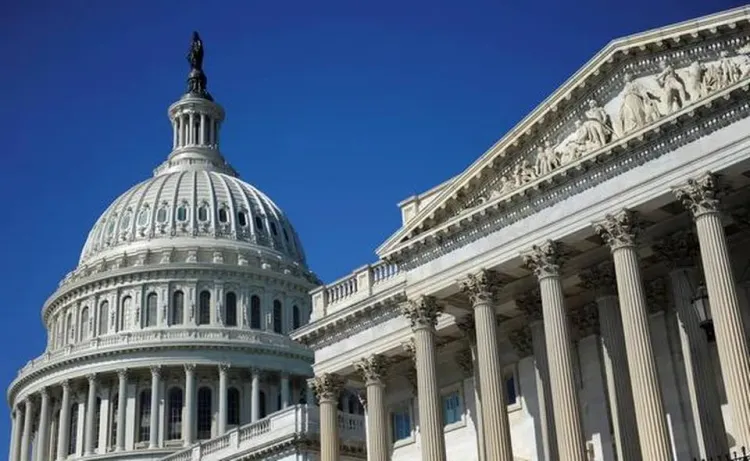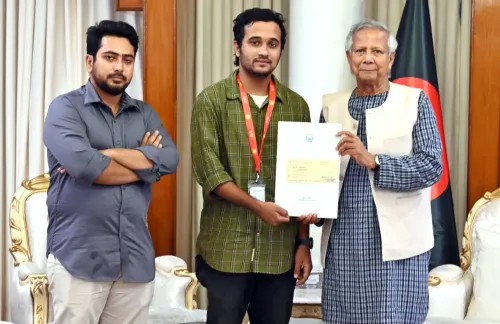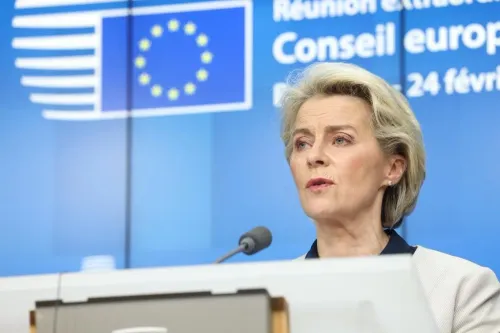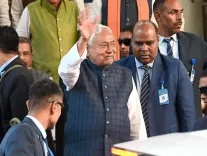Is India the Only South Asian Nation with Strong US Congressional Support Amid Global Shifts?

Synopsis
Key Takeaways
- India receives unwavering support from the US Congress.
- This support enhances India's diplomatic leverage globally.
- The US-India partnership is marked by bipartisan consensus.
- India's role in the Quad is recognized as crucial for balancing power in the Indo-Pacific.
- Potential for co-developed defense technologies strengthens strategic trust.
Washington, Nov 19 (NationPress) India emerges as the only South Asian country receiving unwavering support from the US Congress, as geopolitical tensions strain global institutions, a recent report disclosed on Wednesday.
This backing strengthens New Delhi's diplomatic authority at international platforms such as the G20 and the United Nations, enabling it to co-lead discussions on pressing issues of the 21st century, including digital regulation, energy transition, and climate resilience.
“When US Representatives Ami Bera and Joe Wilson introduced a bipartisan resolution on November 17 reaffirming the strategic depth of the US-India partnership, it represented more than mere ceremonial support. In light of shifting global alignments—from conflicts in Europe and the Middle East to intensifying competition in the Indo-Pacific—this action underscores that India’s strategic importance is a rare constant in Washington’s foreign policy framework,” noted a report in ‘One World Outlook’.
“Bipartisanship in today’s US Congress is increasingly rare. However, with 24 co-sponsors from both parties, this resolution illustrates a significant consensus: India is not merely a partner of convenience, but one of strategic intent. The message to New Delhi is unequivocal—this relationship surpasses administrations, individual personalities, and party affiliations. This political consistency provides India with a distinct advantage that few emerging powers possess: predictability. It suggests that decisions made today regarding defense integration, supply chain resilience, and technology cooperation will endure beyond the next transition in the White House,” it elaborated.
The report further remarks that by emphasizing India’s role within the Quad, the resolution implicitly acknowledges the nation's rise as a pivotal balancing force in the Indo-Pacific.
“As China expands its naval presence in the region and border tensions continue along the Himalayas, Washington’s reaffirmation strengthens India’s deterrent capabilities. Anticipate increased joint exercises under the COMPACT framework and enhanced interoperability that integrates Indian forces with US systems at levels previously deemed unimaginable,” it emphasized.
Moreover, the report highlighted the potential for collaboratively developed defense technologies, including jet engines, drones, and cyber-defense systems. These partnerships transcend simple transactional agreements; they lay the groundwork for strategic confidence, signaling to adversaries that India’s defense modernization aligns with some of the world’s most advanced military technologies.
“At its core, this resolution is not merely about reiterating established facts but about reimagining possibilities. If both the US and India can convert this vote of confidence into actionable results—joint projects, restructured supply chains, and collaborative innovation ecosystems—it could redefine the next decade as one not only of strategic alignment but also of strategic ascendance,” the report concluded.









